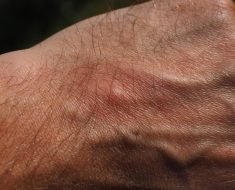For more than a third of children living with epilepsy, the currently approved medications do not stop their seizures. This statistic has not changed for the past five decades, despite the development of many new anti-seizure drugs.
Deborah Kurrasch, Ph.D., a neuroscientist and Dr. Jong Rho, a pediatric neurologist at the Cumming School of Medicine (CSM), wondered about the reasons for the slow progress and started questioning the methods used to develop new medications.
“For many years, the focus has been on finding drugs that block channels and receptors in the brain that affect the way signals are made between cells. We wanted to find new drugs for the epileptic children who don’t respond to current medications, and this required a wholly different approach,” says Kurrasch, associate professor and member of the Alberta Children’s Hospital Research Institute (ACHRI) and the Hotchkiss Brain Institute (HBI) at the CSM.
They started investigating the effectiveness of the ketogenic diet—a high fat, low carbohydrate diet that can reduce seizures in patients who are treatment-resistant. “The ketogenic diet is thought to work by changing the way cells produce energy, and for reasons that are not fully understood, this shift in energy production calms the excitability within epileptic brains,” says Rho, professor and a member of ACHRI and the HBI. “We wondered if we could exploit this principle to find different drugs that help decrease seizure activity.”
That led them to develop a new drug screening method that measures energy production in the background of a diseased brain. Specifically, they tested new drugs in zebrafish, a small, tropical fish genetically similar to humans whose brains can develop seizures in a manner similar to patients with epilepsy. Importantly, the researchers began testing drugs currently used for diseases other than epilepsy. Because these drugs are already approved and known to be safe, they can be rapidly translated into clinical use.
Using this approach, Kurrasch and Rho made a surprising discovery. “We tested a drug currently used for cancer treatment (vorinostat (Zolinza)) and found that it reduced average daily seizures in zebrafish and mouse models by 60 per cent,” says Kurrasch. This finding was recently published in Brain.
This spring, a clinical trial will start at the Alberta Children’s Hospital exploring the clinical efficacy of vorinostat in children who have failed to respond to current anti-seizure medications.
Source: Read Full Article





